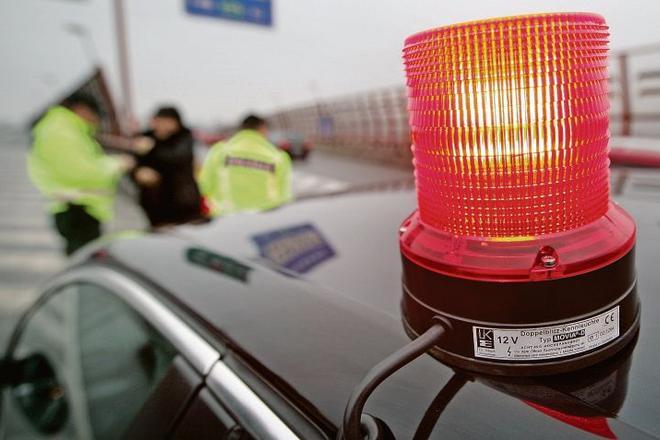Only 32 percent of Slovaks think that the number of road deaths may significantly decrease in the next few years, which is 17 percentage points less than the European Union average (49 percent), the TASR newswire wrote on March 24. Slovakia was therefore found to be the most pessimistic country ahead of Greece (33 percent) and Germany (36 percent) in a poll carried out by the VINCI Auto-routes Foundation in cooperation with the IPSOS Foundation, meant to shed some more light on drivers' behaviour in 11 EU member countries. The foundations launched the 'European Barometer on Responsible Driving' project six years ago and managed to collect the data within three years.
Slovaks vs. Europeans
Slovaks consider themselves to be good drivers, although they are very critical when it comes to others. When asked how they would grade their own driving skills, they gave themselves 7.5 out of 10 on average, which is more modest than the EU average (7.7); when describing their own behaviour while driving, almost all Slovaks (97 percent) used at least one positive adjective, such as cautious (69 percent), calm (58 percent) and decent (19 percent). Slovaks were not so gracious when describing their compatriots. They consider them to be irresponsible (60 percent), aggressive (33 percent), dangerous (24 percent) and stressed out (22 percent).
Europeans, on the other hand, agreed that the best drivers are the Swedes (37 percent), followed by the Germans (27 percent) and British (12 percent). Meanwhile, they consider Italians (28 percent), Greeks (18 percent) and Poles (15 percent) to be the most irresponsible drivers.
The VINCI Autoroutes Foundation for Responsible Driving is a kind of laboratory, observatory and information tool designed for reducing danger on the roads, aimed at changing behaviour among drivers and to help them to ensure their own safety.
As for driving habits, 37 percent of Slovak drivers forget to fasten their safety belts compared to the EU average of 22 percent. The results show that 83 percent of Slovak drivers conceded the possibility of exceeding the speed limit by several kilometres per hour, while the EU average was 90 percent. When it came to keeping a safe distance between vehicles, 63 percent of Slovaks confessed to not doing so. Around 50 percent of Slovak respondents stated they forget to slow down near areas indicating a work in progress, while 53 percent is the EU average. Similar numbers popped up in terms of drivers forgetting to turn on the direction indicators when changing lanes or passing another car – 45 percent in Slovakia and 53 percent in the remaining countries.
Slovaks’ driving behaviour
The research also delved into rude behaviour behind the steering wheel. Approximately 48 percent of Slovak drivers honk inappropriately, while 44 percent swear at other drivers, compared to EU average of 47 and 54 percent, respectively. More than one fifth of Slovaks step out of the vehicle to explain a particular situation with the other driver (EU average – 16 percent) and 17 percent try to pass other cars on the motorway from the right side (EU – 30 percent). About half of Slovaks admitted to making calls without a hands-free device while driving, compared to 32 percent on average. This result puts them among the most reckless drivers – with the Greeks being the worst offenders on 55 percent. Just as frightening is the confession that 27 percent of Slovak drivers send text messages and emails while driving (EU – 25 percent) and 34 percent set GPS parameters while on the road (EU – 37 percent).
Drowsiness behind the wheel is a very common phenomenon and 29 percent of Slovaks think they can drive despite being tired. They also think that sleepiness can be fought off by talking to your passenger (91 percent), listening to the radio (74 percent) or by opening the window (65 percent). Almost one third of Slovaks admitted falling to micro-sleep at least once, while 17 percent conceded wandering off to the shoulder of the road or to safety fences due to fatigue or momentary distraction. Speaking of longer road trips, Slovak drivers take a break after three hours and 18 minutes of driving on average, which is high above the recommended two hours. These are predominantly drivers hitting the road at night (77 percent).



 Illustrative stock photo (source: SME)
Illustrative stock photo (source: SME)